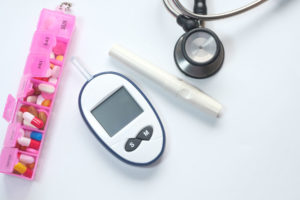
To investigate this issue, researchers have now analyzed relevant data from a French cohort study that began in 1990 and included follow up questionnaires every two or three years. Information on type 2 diabetes status and exposure to antidepressants was obtained through drug reimbursement data.
The researchers found that of the 63,999 women who were initially not taking any medications for type 2 diabetes, 1,124 developed type 2 diabetes over the 6 subsequent years that their information was tracked. Compared to those who did not use antidepressants, those taking antidepressants were more likely to develop type 2 diabetes.
An analysis of how the type of antidepressant may modify type 2 diabetes risk was also undertaken. The results showed that while women taking selective serotonin reuptake inhibitors (SSRIs) had a 1.25 fold increased risk for type 2 diabetes, those taking imipramine-type and ‘other’ or ‘mixed’ antidepressants had 1.35 fold and 1.82 fold increased risk.
Based on their results, the authors of the study suggest that glucose levels be monitored in those who are put on antidepressants. More research will likely help to clarify if and how antidepressants may affect glucose metabolism and risk for type 2 diabetes and how that risk can be effectively managed by physicians so that those who need antidepressant medication can get the treatment they need as safely as possible.
Reference
Da Silva, M.A. et al. (2020). Increased risk of type 2 diabetes in antidepressant users: evidence from a 6-year longitudinal study in the E3N cohort. https://doi.org/10.1111/dme.14345
